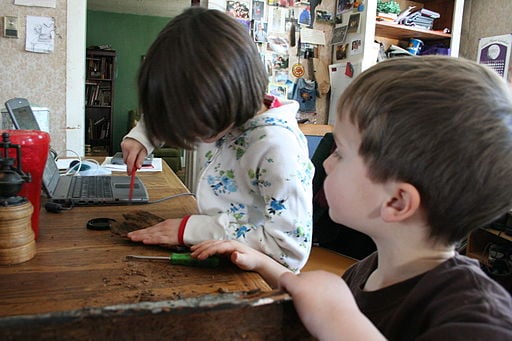Do you find yourself talking about executive function skills at cocktail parties these days? OK – neither do I. But only because no one invites me to cocktail parties. If they did, though, I might ruin their soiree by blathering on about the latest trend in how to obsess about having the perfect child.
When I taught public high school in NYC, the veteran teachers would grumble each year as the latest school reform effort. But not me. I loved those professional development workshops. Teaching was hard and I was always eager (read desperate) for anything that promised to help.
That desire for SOMETHING, anything, that promises to help has followed me right on into parenting. Even as I pray for God to give my kids everything I cannot and to heal all that I break, I am still a sucker for the latest parenting trend. Over the years, I’ve read about and forced Jeff to read about: prenatal exercise, ferberizing, attachment parenting, sensory integration, parenting with love and logic, hooked on phonics, hooked on the bible (seriously, i bought the deluxe edition), convergence insufficiency, bilingual education, character education, to spank or not to spank, and the benefits of raw milk. The list is too long for one blog.
Last year, it was excecutive function. Executive functions are those functions carried out in the prefrontal cortex, and they are critical for goal-oriented activities. You know, life. These functions regulate other abilities and behaviors. They include the ability to: initiate and stop an activity, make a plan and adjust it as you go, think abstractly, and adapt to novel tasks and changing environments.
As one researcher said to a packed room of parents last year, “For too many young people these days, all of their executive functions reside in their mothers.” Mommy organizes the schedule, plans every project, nags until all of the chores and homework and piano practice are done, and swoops in to fix it when something goes wrong.
I went with a friend last week to hear Ellen Galinsky. She was talking about her new book, Mind In The Making. In it, she writes about the seven life skills that all children need; and they are all in some way a type of executive function. The research she presents on how critical these skills are is convincing – so convincing that I started to get nervous as I read through the list:
- Focus and Self Control
- Perspective Taking
- Communicating
- Making Connections
- Critical Thinking
- Taking on Challenges
- Self-Directed, Engaged Learning
“Yes!” I think when I see the list. “Of course these are the skills my kids need to thrive. And they have none of them. And I am failing, and they are doomed.”
Here’s the key about these skills, though. They are all teachable. Whether your kids have ADHD or dyslexia or Teret’s, you can help them improve whatever ability they currently have to plan and cope and adjust and connect. The prefrontal cortex of the brain develops through early adulthood. And as important as these skills have been shown to be, they have equally been shown to be teachable.
Whew!
So I thought I’d take a minute each day this week to reflect on the seven skills and compare them to Charlotte Mason’s writings, which are based on the observations of the Victorian schoolteacher who was in awe of God and the way he made children. I’m reading through both of them right now (along with a lot of ancient Chinese history that I never learned because I never learned anything about a single ancient civilization during my entire education – but don’t get me started), so I thought it might be fun to think about them together.
Tomorrow – Focus and Self Control (which will be both my prayer and my topic).
PS – I should probably say that the boys do exhibit some self-control. Like Friday, when Ezra stopped himself from running into the street and said, “Today would not be one of the best days to get killed.”











